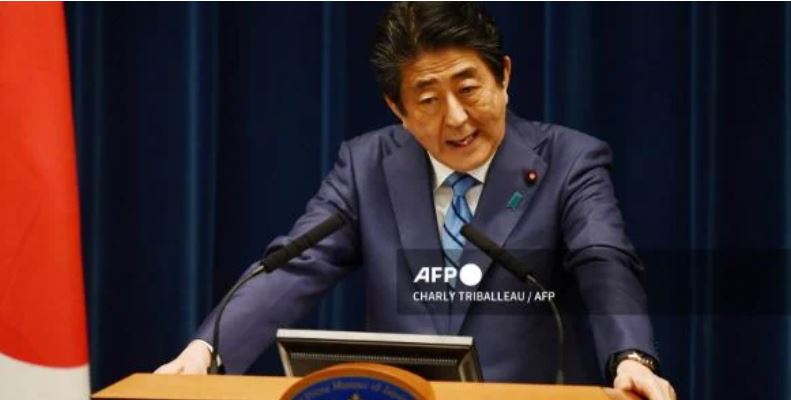Japan’s former Prime Minister Shinzo Abe was shot at a campaign event on Friday, a government spokesman said, as local media reported the nation’s longest-serving premier was showing no vital signs.
“Former prime minister Abe was shot at around 11:30 am,” in the country’s western region of Nara, Chief Cabinet Secretary Hirokazu Matsuno, told reporters.
“One man, believed to be the shooter, has been taken into custody. The condition of former prime minister Abe is currently unknown.”
“Whatever the reason, such a barbaric act can never be tolerated, and we strongly condemn it,” Matsuno added.
Abe was fighting for his life on Friday after being shot at a campaign event, Prime Minister Fumio Kishida later said, condemning the “absolutely unforgivable” attack.
“Abe was shot in Nara and I have been informed he is in a very grave condition,” Kishida told reporters after arriving in Tokyo by helicopter from the campaign trail.
“I pray that former prime minister Abe will survive,” the visibly emotional leader said.
“It is a barbaric act during election campaigning, which is the foundation of democracy, and it is absolutely unforgivable. I condemn this act in the strongest terms.”
Local media including national broadcaster NHK and the Kyodo news agency said Abe appeared to be in “cardiorespiratory arrest”, a term often used in Japan before a feared death can be officially confirmed by a coroner.
The attack on a man who may be Japan’s best-known politician comes despite the country’s famously low levels of violent crime and tough gun laws, and with politicians campaigning ahead of upper house elections on Sunday.
Abe, 67, had been delivering a stump speech with security present, but spectators were able to approach him fairly easily.
Footage broadcast by the NHK showed him standing on a stage when a loud blast was heard with smoke visible in the air.
As spectators and reporters ducked, a man was shown being tackled to the ground by security.
Local media identified the man as 41-year-old Tetsuya Yamagami, citing police sources, with several media outlets describing him as a former member of the Maritime Self-Defense Force, the country’s navy.
Witnesses at the scene described shock as the political event turned into chaos.
“He was giving a speech and a man came from behind,” a young woman told NHK.
“The first shot sounded like a toy bazooka. He didn’t fall and there was a large bang. The second shot was more visible, you could see the spark and smoke,” she added.
“After the second shot, people surrounded him and gave him cardiac massage.”
Abe was bleeding from the neck, witnesses said and photographs showed. He was reportedly initially responsive but subsequently lost consciousness.
Officials from the local chapter of Abe’s Liberal Democratic Party said there had been no threats before the incident and that his speech had been announced publicly.
The attack prompted international shock.
“This is a very, very sad moment,” US Secretary of State Antony Blinken told reporters at a G20 meeting in Bali, saying the United States was “deeply saddened and deeply concerned”.
Thailand’s Prime Minister Prayut Chan-O-Cha was “very shocked” at Abe’s shooting, while Indian Prime Minister Narendra Modi said he was “deeply distressed” by the news.

